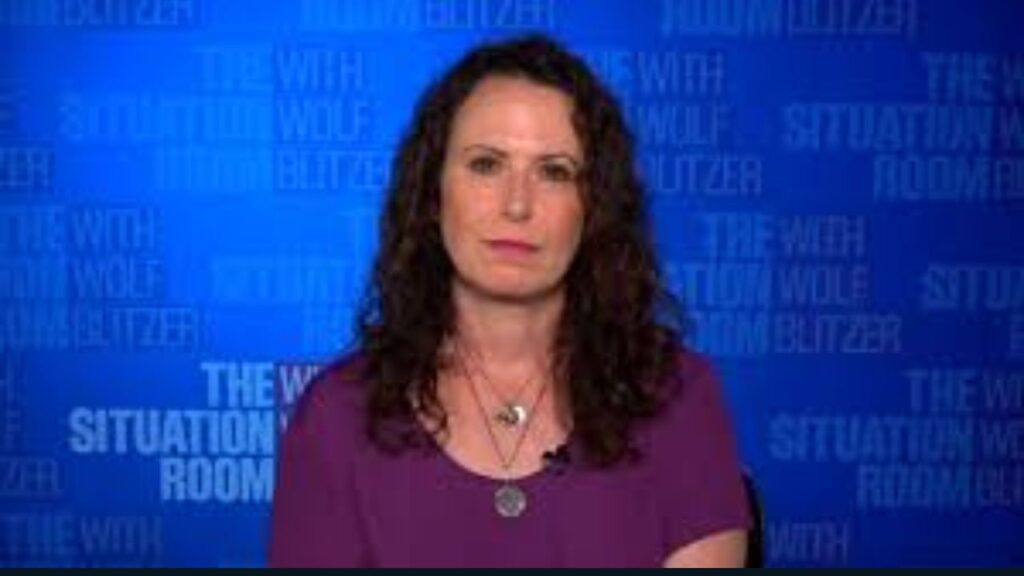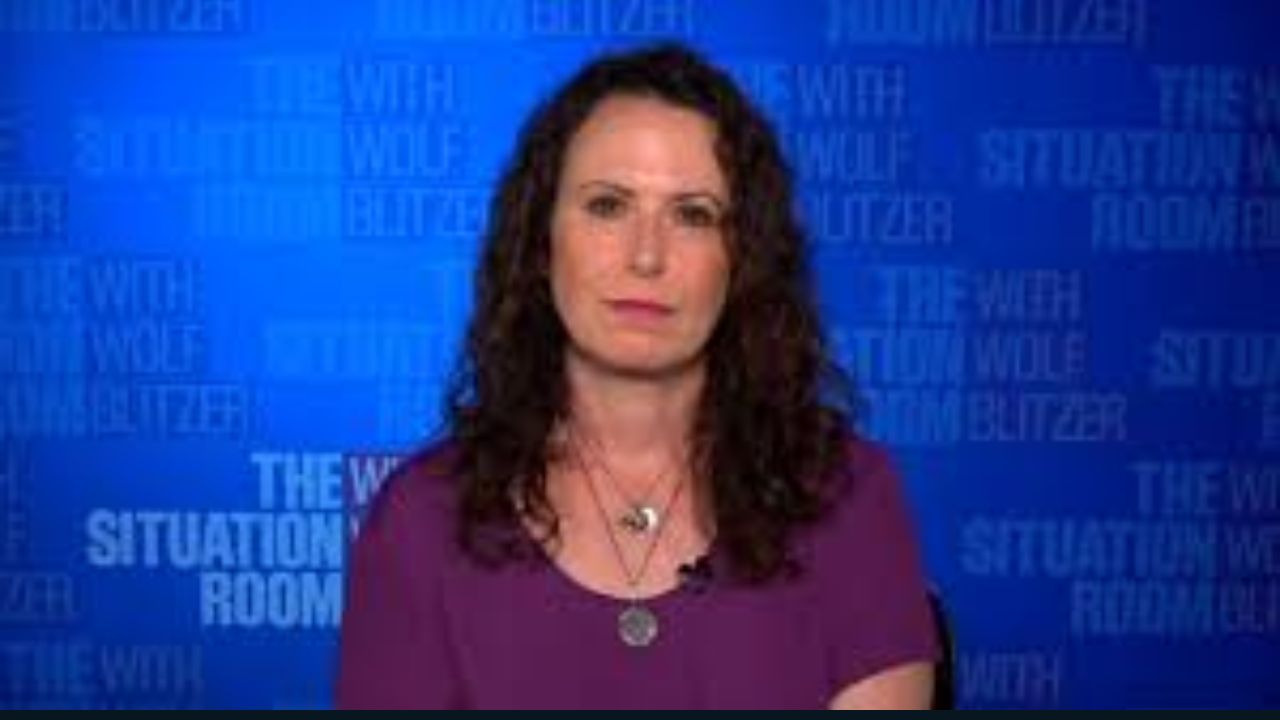Trump vs Harris debate, Maggie Haberman analysis, Trump debate reluctance, Kamala Harris debate, Trump political strategy, Trump Harris debate reasons, Maggie Haberman insights, Trump debate history, Kamala Harris debating skills, political debates 2024
Senior political correspondent Maggie Haberman explains why former President Donald Trump is hesitant to commit to a debate with Vice President Kamala Harris. Explore the strategic considerations and risks influencing Trump’s decision, as well as Harris’s debating prowess and potential impact of such a debate.

Maggie Haberman Explains Why Trump Won’t Commit to a Debate with Harris
In the ever-evolving landscape of American politics, debates play a critical role in shaping public opinion and providing a platform for candidates to present their policies. Recently, the conversation has turned towards a potential debate between former President Donald Trump and Vice President Kamala Harris. Senior political correspondent for the New York Times and CNN political analyst Maggie Haberman offers insight into why Trump is hesitant to engage in such a debate.
The Context
The idea of a debate between Trump and Harris has generated considerable interest. Both figures are prominent in their respective political spheres, with Trump being a polarizing figure and Harris being the first female Vice President of the United States. The dynamics of such a debate would be intriguing, given their differing political philosophies and rhetorical styles.
Trump’s Debate History
To understand Trump’s reluctance, it’s essential to look at his history with debates. During the 2016 presidential campaign, Trump participated in multiple debates against Hillary Clinton. His performance was characterized by aggressive tactics and personal attacks, which resonated with his base but drew criticism from others. In the 2020 election cycle, Trump’s debate with Joe Biden was similarly contentious, with frequent interruptions and a lack of substantive policy discussion.
Trump’s approach to debates has often been more about dominating the conversation than engaging in a traditional exchange of ideas. This style has been effective in energizing his supporters but has also led to significant backlash.
Harris’s Debate Style
Kamala Harris, on the other hand, has shown herself to be a skilled debater. Her performances during the Democratic primary debates and the Vice Presidential debate against Mike Pence demonstrated her ability to articulate policy positions clearly and effectively. Harris’s background as a prosecutor has equipped her with sharp questioning skills and a confident presence, making her a formidable opponent in a debate setting.
Reasons for Trump’s Reluctance
- Strategic Considerations: One of the primary reasons Trump might avoid a debate with Harris is strategic. Engaging in a debate with the Vice President, rather than President Biden, could be seen as lowering the stakes for Trump. It might not align with his narrative of directly challenging the sitting President, which is more appealing to his base.
- Risk of Losing: Debating Harris poses a significant risk for Trump. Harris’s debating skills and ability to counter aggressive tactics with poise could make Trump look unprepared or overly confrontational. Losing a debate to Harris could damage Trump’s image, which is built on projecting strength and dominance.
- Focus on Base: Trump’s political strategy has often focused on solidifying his base rather than expanding it. Engaging in a debate with Harris might not offer substantial benefits in terms of attracting new supporters. Instead, Trump may prefer to communicate directly with his base through rallies and social media, where he can control the narrative without the unpredictability of a debate.
- Media Dynamics: The media environment plays a significant role in Trump’s decision-making. Debates are heavily scrutinized by the media, and any misstep is amplified. Trump might perceive the media coverage of a debate with Harris as likely to be unfavorable, especially given the critical coverage he often receives from mainstream outlets.
Maggie Haberman’s Analysis
Maggie Haberman, known for her in-depth reporting on Trump and her insights into his behavior, highlights several factors in her analysis. She suggests that Trump’s reluctance is rooted in his understanding of the risks involved and his preference for environments where he can exert more control.
Haberman notes that Trump thrives in settings where he can dominate the conversation without being challenged in real-time. Debates inherently involve a level of unpredictability and the possibility of being put on the defensive. This dynamic is less favorable for Trump, who prefers to be the one setting the agenda.
The Impact of a Potential Debate
Should a debate between Trump and Harris occur, it would undoubtedly be a significant event in American politics. The contrast between Trump’s bombastic style and Harris’s prosecutorial precision would provide a stark illustration of the differing approaches within the two major political parties.
For voters, such a debate could offer valuable insights into the policy positions and personalities of the candidates. It would also serve as a measure of each candidate’s ability to handle pressure and engage in substantive discussions.
Conclusion
The reluctance of former President Donald Trump to commit to a debate with Vice President Kamala Harris can be attributed to a combination of strategic considerations, the risk of losing, and his preference for environments where he has more control. As Maggie Haberman explains, Trump’s approach to politics is heavily influenced by his desire to maintain a dominant image and avoid situations that could undermine it.
While a debate between Trump and Harris remains a tantalizing prospect for political observers, it appears unlikely given the current dynamics. For now, the focus will remain on other forms of political engagement and the ongoing debates within each party.
Implications for Future Debates
The discussion around a potential Trump-Harris debate also raises broader questions about the role of debates in the current political climate. As political communication increasingly moves online and through social media, the traditional debate format faces new challenges.
Candidates may find other ways to reach voters and present their platforms, potentially reducing the emphasis on formal debates. However, debates still offer a unique opportunity for direct comparison and accountability, which remains valuable in a democratic society.
Final Thoughts
In conclusion, while the prospect of a Trump-Harris debate is intriguing, it is essential to understand the strategic and personal considerations that influence such decisions. As Maggie Haberman elucidates, Trump’s reluctance is rooted in his desire to avoid situations that could weaken his political standing. Whether or not such a debate happens, the dynamics of political engagement continue to evolve, reflecting the changing landscape of American politics.
Read More
